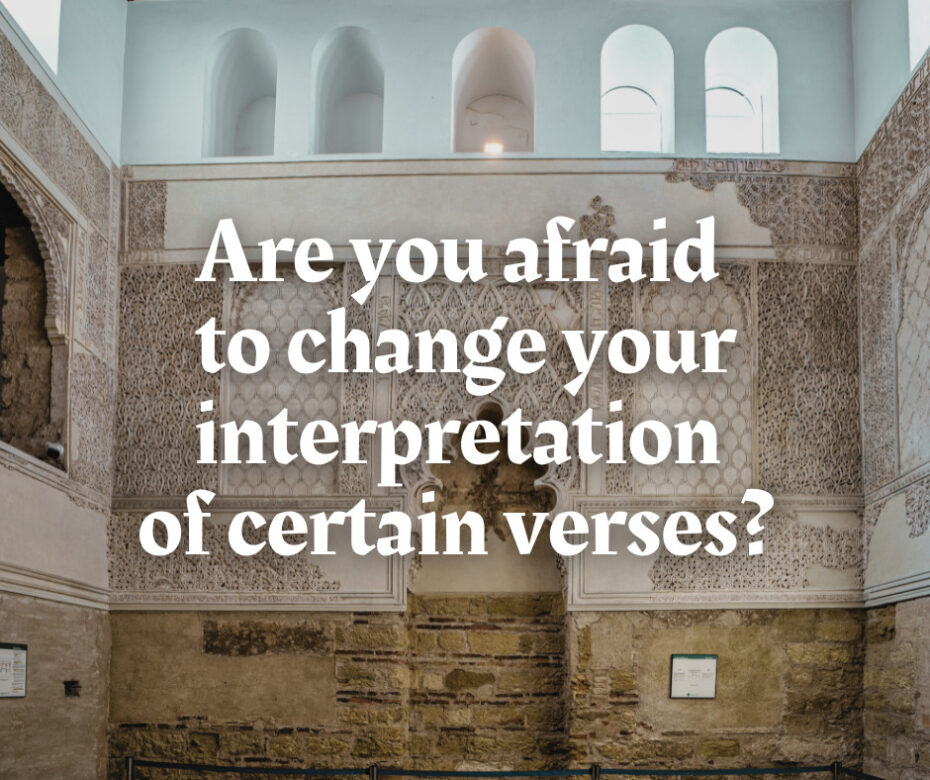There are many instances in our Bible study that present us with more than one option. A particular verse can be interpreted in more than one way. We hear a Bible teacher whom we respect interpret it one way. Then we hear another teacher with another view. We are hard-pressed as to which view is correct. What do we do?
A former Bible teacher warned me about a tendency we all have. When presented with two great options, we’re tempted to say, “Both are right!” I have fallen victim to that practice on many occasions. Every time I do so, however, I recognize that the Biblical writer had only one view in mind.
I have often taken a particular view on a verse only to later take another view. I am sure that many readers have experienced the same thing. Some might accuse us of vacillating, or of being easily persuaded to adopt the views of others. But I think it’s a good thing to be open to other interpretations of difficult passages. It is not necessarily a sign of weak conviction to change one’s views.
In fact, I think such experiences are exciting. They cause us to look at certain passages and study them in more detail. When we consider the context of a portion of Scripture more deeply, we may see that there is indeed a better way to understand it than we have in the past. In fact, our Christian lives should be characterized by such searching.
An example of such a study is Mark 15:38. When Jesus died on the cross, we are told that the veil of the temple was torn in two. For many years I had been told (and taught) that this veil (or curtain) stood between the Holy Place and the Holy of Holies. The tearing of this curtain was a symbol that the way into the very presence of God (represented by the Holy of Holies) was made possible by the death of Christ. Christ’s death on the cross paid for all our sins, and we can now come boldly into the Lord’s presence. Before, the curtain blocked the way. The Book of Hebrews speaks of the veil’s symbolizing this spiritual truth, and of the ability believers now have to boldly enter into God’s presence because Christ is our High Priest (Heb 6:19-20; 10:19-21).
We can see that there are comforting truths contained in such an understanding of the torn veil. It certainly provides great material for sermons or Bible studies. I have used it in this way on occasion.
Maybe that is what Mark 15:38 means. But after hearing others speak on the significance of torn veil, I think another option is much more likely. There was evidently a second veil that stood at the front of the temple. When it tore, it was a symbol of judgment upon the Nation of Israel. The temple was the pride of the nation and the place where sacrifices were made. The nation had killed the King, and because of His sacrifice, the temple no longer had any significance. Because of their rejection of the King, judgment was going to fall. The kingdom would not come to that generation. In fact, the temple itself would be destroyed.
This makes a lot of sense to me. The Book of Mark begins with the offer of the kingdom to the nation. The book ends by telling the reader what the nation did with that offer.
My previous understanding of the torn veil was thrilling. But so is the second view. It ties the Book of Mark together. It causes us to see the difference between Israel and the Church. That generation of Jews would not see the kingdom, but a future one will. God is faithful to His people and His promises.
Somebody who heard me speak on Mark 15:38 in past years and then heard me speak on it today would probably conclude that I’m easily persuaded and don’t have strong convictions. They might even say, “Hey, you’ve changed what you teach.” Such a statement might even carry with it a negative connotation.
Which view of Mark 15:38 is correct? I’m not certain. I am sure many readers of this blog have had similar experiences with many different portions of the Bible. But these experiences are not negative. We are constantly learning from the Word of God. It challenges our understanding of things. We should change our view of things from time to time.
We should not be afraid to change our minds in this way. Our pride may tempt us to hold on to what we have said in the past, especially if we are teachers. Instead, we should search the Scriptures to find new and exciting things.


